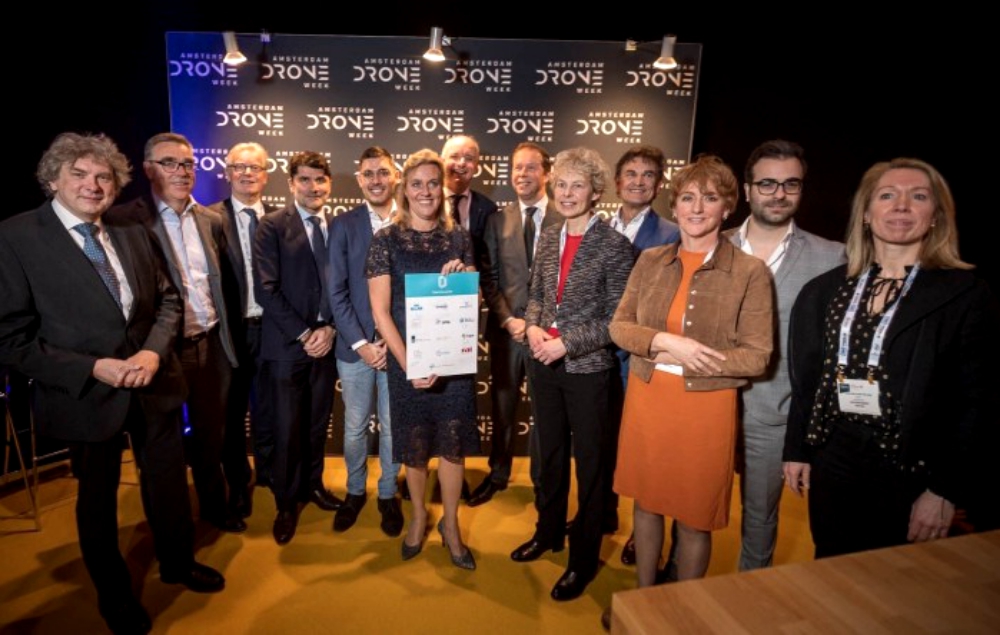Thirteen parties, including Royal Schiphol Group, joined forces during Amsterdam Drone Week in an effort to realise the full potential of drones and Urban Air Mobility – the future of air passenger transport in the Netherlands.
The partners have established Dutch Drone Delta, an alliance set to develop smart, sustainable solutions. This will require close collaboration and the will to innovate through action.
The Dutch Drone Delta partnership is set to launch on 1 January. Royal Schiphol Group will be working with various partners to realise Urban Air Mobility: passenger transport using air taxis with vertical take-off and landing capability. This new form of mobility will have to be integrated into both air space and ground transport infrastructure. A study will be conducted in the first year in order to assess relevant requirements and potential infrastructure locations. An assessment will also be conducted to determine how Urban Air Mobility will impact the living environment.
We feel it’s important to participate in any promising mobility-related developments. That’s why we’re currently working with our partners to explore the future. We want to determine Urban Air Mobility’s potential in terms of improving airport accessibility
The partnership is focused on the sustainable, economically feasible and safe integration of new forms of mobility. The partners feel the Netherlands is ideally positioned to play a leading role thanks to its rich aviation tradition, innovative mindset and openness to cooperation. Together, these factors can yield major results.
A Dutch coalition
In addition to their financial contribution, the coalition partners have the necessary knowledge, expertise, experience and critical mass to realise drone-based applications and jointly shape the future of Urban Air Mobility. Partner organisations include KLM, Air Traffic Control the Netherlands (LVNL), Port of Rotterdam, KPN, a.s.r. schadeverzekeringen, RAI, Connekt, Antea Group, Space53, Koninklijk NLR, Achmea, AirHub and Rijkswaterstaat.

